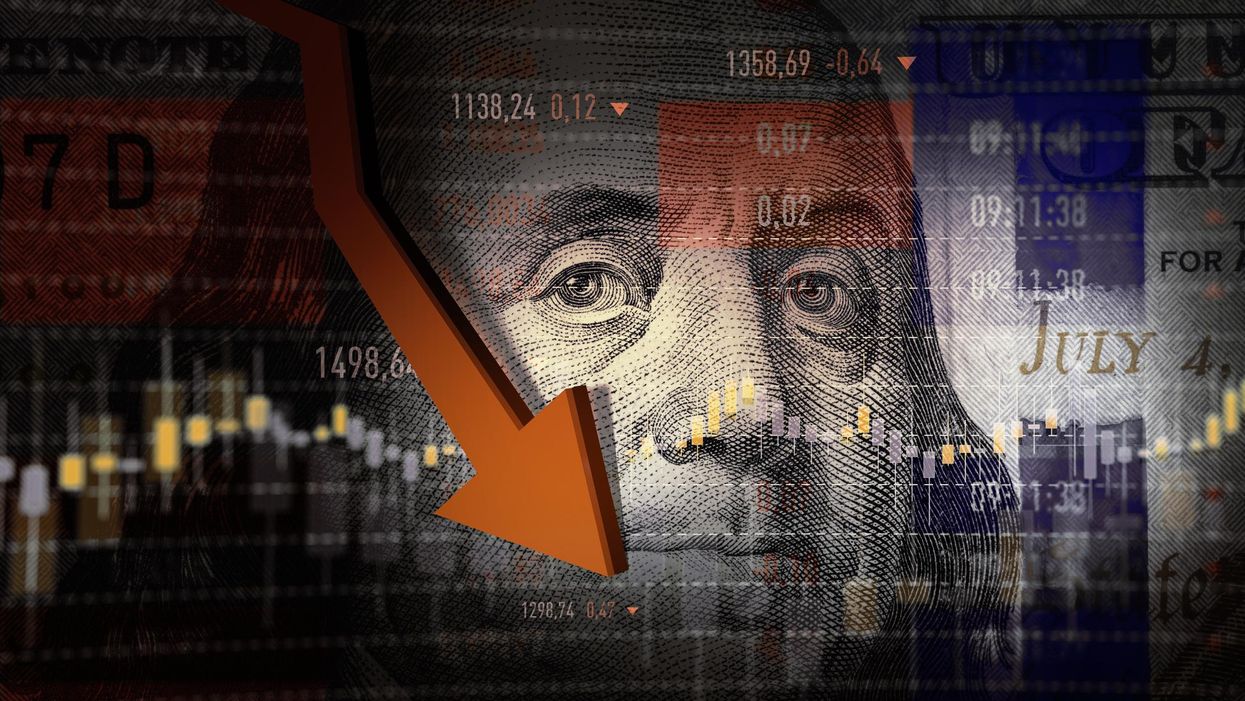
sefa ozel/Getty Images

Well, the long-awaited second-quarter GDP numbers are out, and based on the reading, the economy contracted by 0.9% on a year-over-year basis, adjusted for inflation. Based on the widely accepted definition of a recession being two consecutive negative quarters of GDP, assuming these numbers remain negative, we are unofficially in a recession — or, perhaps, “The Great Reset-sion." However, there’s more to the story than that. Here’s what you need to know.
Gross domestic product is a proxy for the size and value of the economy. It measures the market value of “final” or finished goods and services produced in a country in a given time period.
There are a few ways to measure GDP, but the most common is by looking at expenditures. Of this, consumer spending or “consumption” makes up the biggest component. It also includes business investment and government spending and is adjusted by adding net exports.
GDP is reported in two ways. First, you may see a non-adjusted number referred to as “nominal” GDP; this is the amount of the GDP expressed in today’s prices. However, given the outsized role inflation can play in that number, especially in a period like the one we are in, it makes it hard to compare two different periods with different inflationary backdrops. So, inflation is normalized (aka adjusted) in the “real” GDP number, which is the one you should be focused on.
Each quarter, the GDP gets three different “prints” or readings. Today’s estimate is the first and is widely referred to as the “Advance Estimate.” Near the end of August, you will see the “Second Estimate,” and near the end of September the “Third Estimate,” which is the final estimate. If you like to keep track of these releases, the U.S Bureau of Economic Analysis keeps a release schedule here.
Revisions will be made as more data is collected; as you can imagine, it is a big job to gather data on the entire economy. The revisions can be upward or downward. This is why the National Bureau of Economic Research (NBER) doesn’t usually make its recession calls until after one has already begun, because final and accurate data is needed.
As I have shared with readers in previous articles, recessions are officially declared by NBER, usually after they happen. The bureau's website says the “traditional definition of a recession is that it is a significant decline in economic activity that is spread across the economy and that lasts more than a few months.” While researchers usually look to three “D” factors — depth, duration, and diffusion — extenuating economic situations can change that. The economic areas that are evaluated include inflation-adjusted or “real” GDP, real income, employment, industrial production, and wholesale and retail sales.
The NBER gives itself latitude, whether you agree with it or not, and we can easily hypothesize on why.
However, as noted, the more “colloquial” and widely accepted definition is two consecutive negative GDP quarters, because it’s hard to explain something that doesn’t really have a definition or make meaningful use of the declaration after.
Carol Roth
Contributor